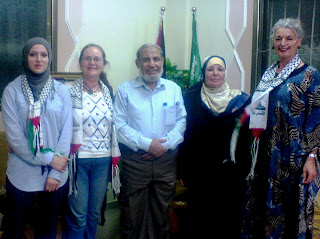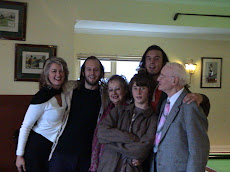
The good people of Gaza could not support us for more than 3 days. They had given us their food, but our hotel had run out on the third day. Although I knew that Israel was only allowing the Gazans enough food through this cruel blockade to keep them just above malnutrition level, the truth of how precarious existence is in this place was driven home. My translator was ambivalent about it 'This happens often in Gaza' she said in her matter of fact way.
So, having said goodbye to the trusty Little Van which had been bought with the donations of so many well wishers, and had carried me safely the 3500 miles from Wales, we were loaded onto coaches - mine was for women only, and taken once more to the gates of Rafah where delays and the sad goodbyes eventually saw us herded onto different coaches for the 6 hour journey to Cairo. We had no choice. The Egyptian government were going to see us 'off the premises' so to speak in their own time, in their own way, and so we drove once more past the scarred remains of what one day will be a very fine city resting on the bright golden sand of endless beaches on the shores of the Mediterranean Sea.

Forever etched in my mind will be the face of Alla as we parted. I could leave, and she could not. The Viva Palestina convoy had brought hope, but the warplanes of Israel were already screeching low overhead,17 we counted, to renew the threats and intimidation and terror, even as we were leaving.
Due to the ever present nausea I was suffering, it was only a matter of time before I threw up - in a carrier bag as it happened- and groaned and grogged my way through the journey. At one stage we stopped, but our guards said only men could get off and relieve themselves. I do not take kindly to this sort of attitude, and forced my way off the coach, closely followed by most of the women present, to find a private place in the sand, in the dark.
At Cairo airport they attempted to kettle us. Again I do not take kindly to this sort of attitude and refused to be kettled. The airport police retaliated by seeking us out wherever we were and banging loudly on metal chairs to wake us up every hour or so. It was a fine revelation to hear that the bartender at the airport had been one of the Egyptians demonstrating against his own government in the streets of Cairo for our passage to Gaza. We were on our way home, mission accomplished. All that remained was to plan the next convoy. The siege of Gaza has to be lifted, the governments of the West are starting to listen to the voices of reason, and we cannot give up now.




















